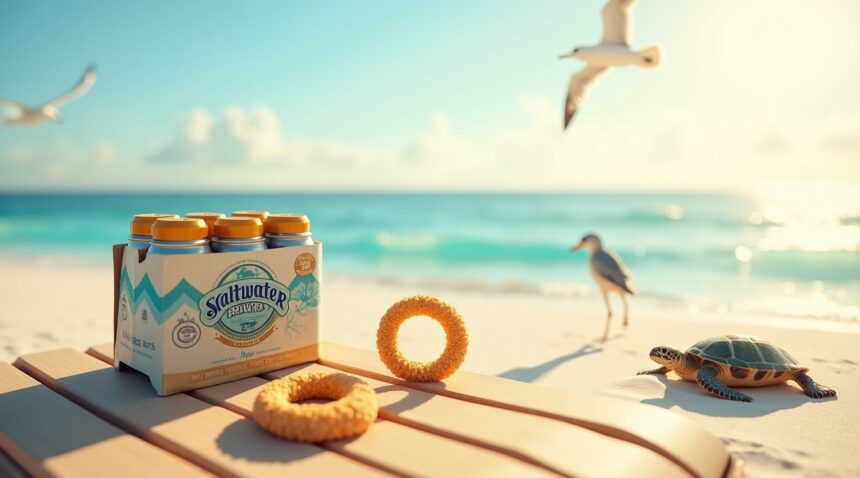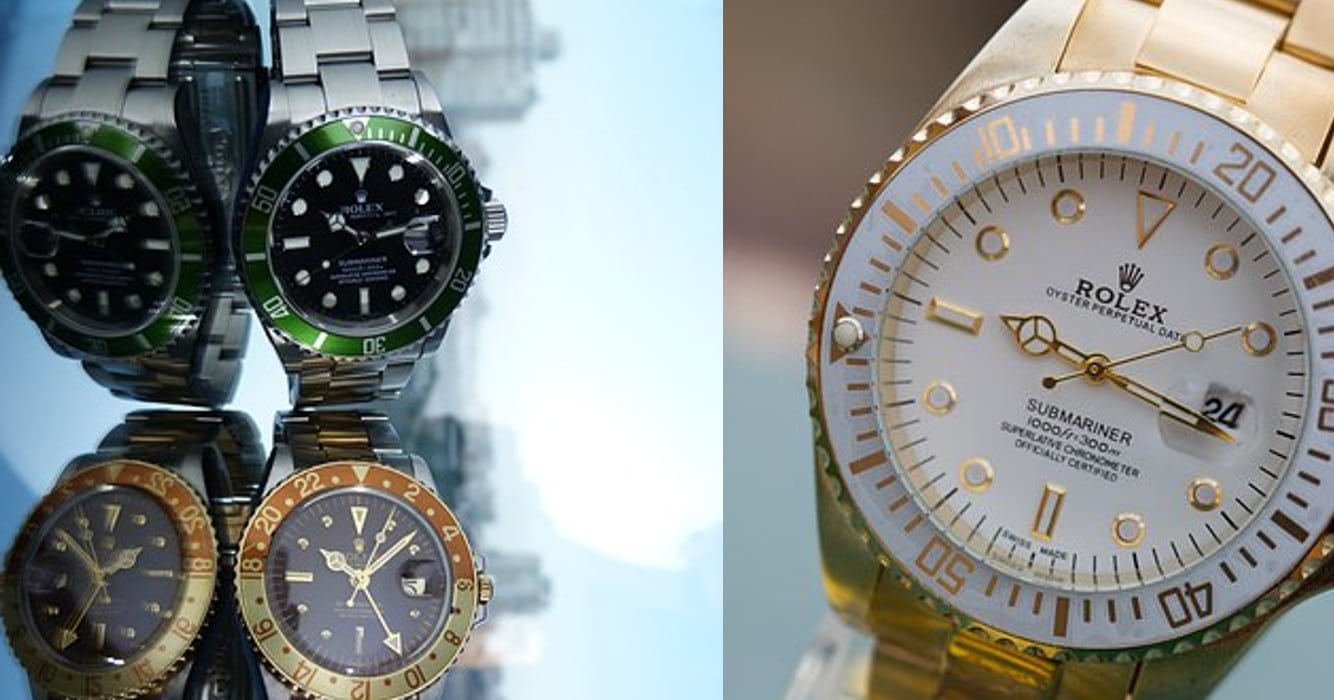Saltwater Brewery in Florida has introduced a revolutionary solution to combat marine plastic pollution by engineering the world’s first edible and compostable six-pack rings, using grain remnants from the beer brewing process.
Key Takeaways
- Saltwater Brewery created edible six-pack rings from wheat and barley leftovers that decompose naturally and provide nutrition to marine animals instead of harming them.
- The E6PR technology maintains the same structural integrity and durability as traditional plastic rings while completely eliminating the threat to ocean wildlife.
- Major retailers including Publix, Whole Foods, and Total Wine now stock these products, while Corona became the first major beer brand to adopt the technology.
- Breweries around the globe in countries including Australia, South Africa, Poland, and Scotland are testing or implementing this sustainable packaging solution.
- This innovation supports a circular economy model where brewing waste becomes valuable packaging material, encouraging other companies to explore eco-friendly practices.
Learn More
To learn more about Saltwater Brewery and their environmental initiatives, visit their official website at Saltwater Brewery. For further insight into the E6PR technology and its global impact, check out E6PR.com.
Revolutionary Edible Rings Save Marine Life While Using Brewery Waste
Saltwater Brewery, a craft brewery in Florida, has created the world’s first edible, compostable six-pack rings made from grain remnants. This groundbreaking innovation transforms wheat and barley leftovers from the beer brewing process into packaging that protects marine life rather than threatens it.
Addressing a Critical Environmental Problem
Traditional plastic six-pack rings pose a devastating threat to marine ecosystems. An estimated 1 million seabirds and 100,000 marine mammals and sea turtles die each year from entanglement or ingestion of these plastic carriers. These statistics highlight the urgent need for sustainable packaging alternatives that don’t compromise ocean wildlife safety.
I’ve observed how conventional plastic rings can persist in marine environments for hundreds of years, continuing to trap and harm wildlife long after consumers discard them. Saltwater Brewery’s innovative solution directly addresses this crisis by creating rings that animals can safely consume without harm if they encounter them in their natural habitat.
Turning Waste into Wildlife Protection
The brewery’s edible rings represent a perfect example of circular economy principles in action. Instead of discarding spent grain as waste, Saltwater Brewery converts these brewing by-products into functional packaging material. This process eliminates waste while creating a product that actively benefits the environment.
These revolutionary rings offer several key advantages over traditional plastic alternatives:
- Complete biodegradability in natural environments
- Safe consumption by wildlife without toxic effects
- Compostable properties that enrich soil when properly disposed
- Equal strength and durability compared to plastic rings
- Resistance to typical handling and transportation stresses
The edible six-pack rings maintain the same structural integrity as conventional plastic versions, ensuring no compromise on consumer experience or product protection. They can handle standard weight loads and withstand normal abuse during shipping and retail display, making them a viable replacement rather than just an experimental concept.
What sets this innovation apart is its dual environmental benefit. By utilizing grain remnants that would otherwise require disposal, the brewery reduces waste while simultaneously creating packaging that won’t harm marine life. This approach transforms a potential environmental burden into an active solution for ocean conservation.
The rings decompose naturally in marine environments, breaking down into harmless components that don’t accumulate in the food chain. Unlike plastic alternatives that fragment into microplastics, these edible rings disappear completely without leaving harmful residues. Marine conservation efforts like this demonstrate how industry innovation can drive meaningful environmental change.
Saltwater Brewery’s development process focused on creating rings that maintain consumer functionality while prioritizing wildlife safety. The final product successfully balances commercial viability with environmental responsibility, proving that sustainable packaging doesn’t require performance sacrifices.
This innovation represents more than just alternative packaging—it demonstrates how breweries can leverage their existing waste streams to create positive environmental impact. By converting spent grain into wildlife-safe packaging, Saltwater Brewery has established a model that other beverage manufacturers could potentially adopt and scale.
The edible six-pack rings show particular promise for coastal communities where marine wildlife encounters discarded packaging most frequently. Their safe consumption properties mean that even improper disposal doesn’t create the same long-term environmental hazards associated with traditional plastic rings.
How E6PR Technology Works and Performs Against Traditional Plastic
The E6PR (Eco Six Pack Ring) represents a breakthrough innovation that transforms brewing waste into functional packaging. Saltwater Brewery partnered with a startup to develop this technology for wider industry adoption, creating a solution that addresses one of the beverage industry’s most persistent environmental challenges.
The Manufacturing Process Behind E6PR
E6PR rings are manufactured using barley and wheat by-products that would otherwise become waste from the brewing process. This approach transforms what breweries typically discard into valuable packaging material, creating a true upcycling solution. The production process maintains the structural integrity needed for commercial beverage packaging while ensuring complete biodegradability.
During manufacturing, these grain by-products undergo processing that creates rings with strength comparable to traditional plastic alternatives. The technology preserves the essential binding properties needed to secure six-packs during transportation and retail display. Quality control measures ensure each ring meets industry standards for durability and performance.
Performance Comparison and Safety Benefits
Testing demonstrates that E6PR rings match traditional plastic rings in structural performance without compromising product safety or handling requirements. Distributors and retailers can handle E6PR-packaged beverages using existing processes and equipment. The rings maintain their integrity throughout the supply chain, from brewery to consumer.
Wildlife safety represents the most significant advantage over conventional packaging. Marine animals and birds that encounter E6PR rings can safely consume them, as the rings provide nutritional value rather than causing harm. Research shows that traditional plastic rings continue to pose fatal risks to wildlife even when consumers attempt to cut them before disposal, since animals still ingest the plastic fragments.
The edible nature of E6PR completely eliminates this hazard. Turtles, fish, and seabirds that accidentally consume these rings receive nutrients instead of suffering intestinal blockages or chemical poisoning. This fundamental difference makes E6PR a superior choice for environmentally conscious breweries and consumers.
Storage and handling requirements for E6PR remain straightforward, though slight modifications to warehouse practices may be necessary. The rings perform reliably under normal distribution conditions while offering the added benefit of complete biodegradability. When disposed of properly, E6PR rings break down naturally without leaving harmful residues in soil or water systems.
Cost considerations initially positioned E6PR as a premium packaging option, though scaling production has begun reducing price gaps with traditional alternatives. Forward-thinking breweries recognize that the environmental benefits and positive brand association often justify any premium pricing. Consumer research indicates strong preference for products packaged with sustainable alternatives when given clear information about environmental impact.
The technology behind E6PR demonstrates that innovative solutions can address environmental concerns without sacrificing functionality. By converting brewing waste into protective packaging, this approach creates value from materials that would otherwise require disposal. The success of E6PR has inspired other food and beverage companies to explore similar upcycling opportunities within their operations.
Quality assurance protocols ensure that E6PR rings meet food safety standards while maintaining their protective function. Regular testing confirms that the rings remain stable during typical storage periods and don’t affect beverage quality or taste. These performance characteristics make E6PR a viable replacement for traditional plastic rings across various beverage categories.
Implementation of E6PR technology requires minimal changes to existing packaging lines, making adoption feasible for breweries of different sizes. The rings integrate seamlessly with standard canning and packaging equipment, reducing barriers to widespread adoption. This compatibility factor has been crucial in encouraging industry interest and investment in sustainable packaging alternatives.
To see an example of how E6PR works and its impact, watch the following video:
https://www.youtube.com/watch?v=WO3hdaY6ncs
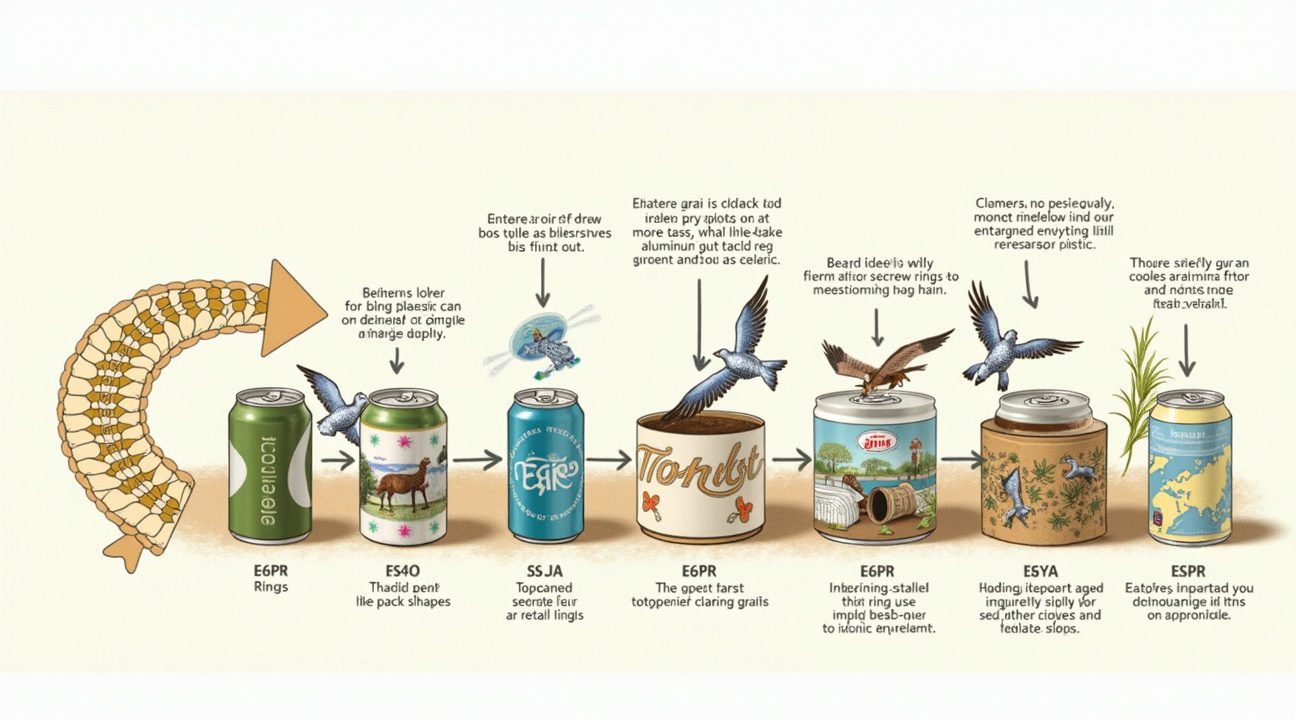
Massive Scale of Ocean Plastic Crisis Demands Industry Innovation
The statistics surrounding ocean plastic pollution paint a sobering picture that demands immediate attention from industries across the globe. Current research indicates that between 8 and 11 million tons of plastic waste enter our oceans annually, creating an environmental catastrophe that affects marine life at every level of the food chain.
Plastic six-pack rings represent just one component of this massive pollution problem, yet their impact proves disproportionately devastating to marine wildlife. These seemingly innocuous packaging materials persist in ocean environments for decades, entangling sea turtles, birds, and fish while slowly breaking down into microplastics that contaminate the entire marine ecosystem.
Regional Impact Highlights the Crisis
Research consistently identifies the Gulf of Mexico as one of the most heavily polluted marine regions globally, with particularly high concentrations of plastic debris. This finding hits close to home for coastal communities and businesses that depend on healthy marine environments for their economic survival.
A striking example of this pollution’s scope emerged during a 2018 volunteer beach cleanup on Elmer’s Island in Louisiana. Volunteers collected over 170 plastic six-pack rings and an additional 4,000 pounds of other waste materials along just three miles of coastline. These numbers represent only the visible pollution that washed ashore during a brief period, suggesting the actual volume of plastic debris in surrounding waters far exceeds what cleanup efforts can document.
The scale of ongoing pollution continues to accelerate at an alarming rate. Every single minute, the equivalent of one garbage truck’s worth of plastic waste enters our oceans. This relentless flow means that while cleanup efforts provide valuable short-term relief, they can’t address the fundamental problem without significant changes in how industries approach packaging and waste management.
Traditional plastic six-pack rings exemplify the broader challenge facing manufacturers and consumers alike. These products serve their intended function effectively but create long-term environmental consequences that far outweigh their temporary utility. Marine animals often mistake plastic fragments for food, leading to internal injuries, digestive blockages, and death. Others become entangled in discarded rings, suffering cuts, infections, and impaired mobility that reduces their chances of survival.
The brewing industry, with its heavy reliance on six-pack packaging formats, faces particular responsibility for addressing this crisis. While innovative solutions continue emerging across various sectors, the development of edible and compostable alternatives represents a significant breakthrough in reducing packaging-related ocean pollution.
Current plastic ring production relies on petroleum-based materials that resist natural decomposition processes. Even when these rings break down through environmental exposure, they fragment into microplastics that continue circulating through marine food webs for generations. These tiny particles concentrate toxins and disrupt hormone systems in fish and other marine life, ultimately affecting human health when contaminated seafood reaches consumer markets.
The environmental crisis extends beyond immediate marine impacts to affect coastal economies, tourism industries, and fishing communities worldwide. Beaches littered with plastic debris deter visitors, while contaminated fishing grounds reduce catch quality and quantity for commercial operations. These economic pressures create additional incentives for industries to pursue sustainable packaging alternatives.
Innovation in packaging materials offers one of the most promising pathways for reducing ocean plastic pollution at its source. Rather than simply improving recycling programs or cleanup efforts, manufacturers can eliminate problematic materials entirely by developing products that serve their function while remaining harmless to marine environments.
The brewing industry’s exploration of grain-based packaging materials demonstrates how creative problem-solving can transform waste streams into valuable resources. Spent grain from brewing operations traditionally requires disposal or limited agricultural applications, but innovative processing techniques can convert these materials into functional packaging that biodegrades safely in natural environments.
Consumer awareness of ocean plastic pollution continues growing, creating market demand for environmentally responsible packaging solutions. Breweries and other manufacturers that prioritize sustainable practices often find themselves better positioned to attract environmentally conscious consumers while contributing meaningfully to pollution reduction efforts.
https://www.youtube.com/watch?v=Yo7GZ4dUFpE

Global Brewery Adoption Signals Industry Transformation
The E6PR technology has sparked international interest across multiple continents, with breweries in Australia, South Africa, Poland, Scotland, Connecticut, Michigan, Pennsylvania, and Washington State either testing or implementing the edible rings. This widespread geographic adoption demonstrates how a single Florida brewery’s innovation can inspire global change in packaging practices.
Corona’s decision to become the first major beer brand to adopt E6PR represents a pivotal moment for the technology. Their commitment establishes a precedent for high-volume, international deployment that smaller craft breweries couldn’t achieve alone. When industry giants embrace sustainable alternatives, they create the market momentum necessary for widespread transformation.
Retail Integration Accelerates Market Penetration
Following the initial launch, major South Florida retailers began stocking Saltwater Brewery cans equipped with E6PR technology. The adoption by established chains validates the consumer appeal and commercial viability of this sustainable packaging solution:
- Publix integrated the products into their extensive Florida network
- Whole Foods Market aligned the innovation with their sustainability mission
- Total Wine & More offered the products to their environmentally conscious customers
- ABC Fine Wine & Spirits expanded availability across their retail locations
I observe that retail acceptance often serves as the crucial bridge between innovative concepts and mass market adoption. These partnerships provide the distribution infrastructure that small breweries need to scale their environmental impact beyond local markets.
The economic dynamics of E6PR adoption present compelling opportunities for industry transformation. Manufacturing costs typically decrease as production volumes increase, and widespread brewery adoption could drive E6PR prices down to match traditional plastic alternatives. This cost parity would eliminate the primary barrier preventing environmentally conscious packaging choices across the industry.
Current production limitations restrict E6PR availability, but increased demand from mainstream breweries would justify expanded manufacturing capacity. Scale economics could transform what began as a premium sustainable option into a standard packaging choice that doesn’t penalize breweries financially for environmental responsibility.
The brewing industry’s response to spectacular innovations often follows predictable patterns. Early adopters test new technologies, major brands validate market potential, and eventually the innovation becomes standard practice. E6PR appears positioned to follow this trajectory, potentially revolutionizing how the entire beverage industry approaches packaging waste and environmental responsibility through grain-based alternatives.
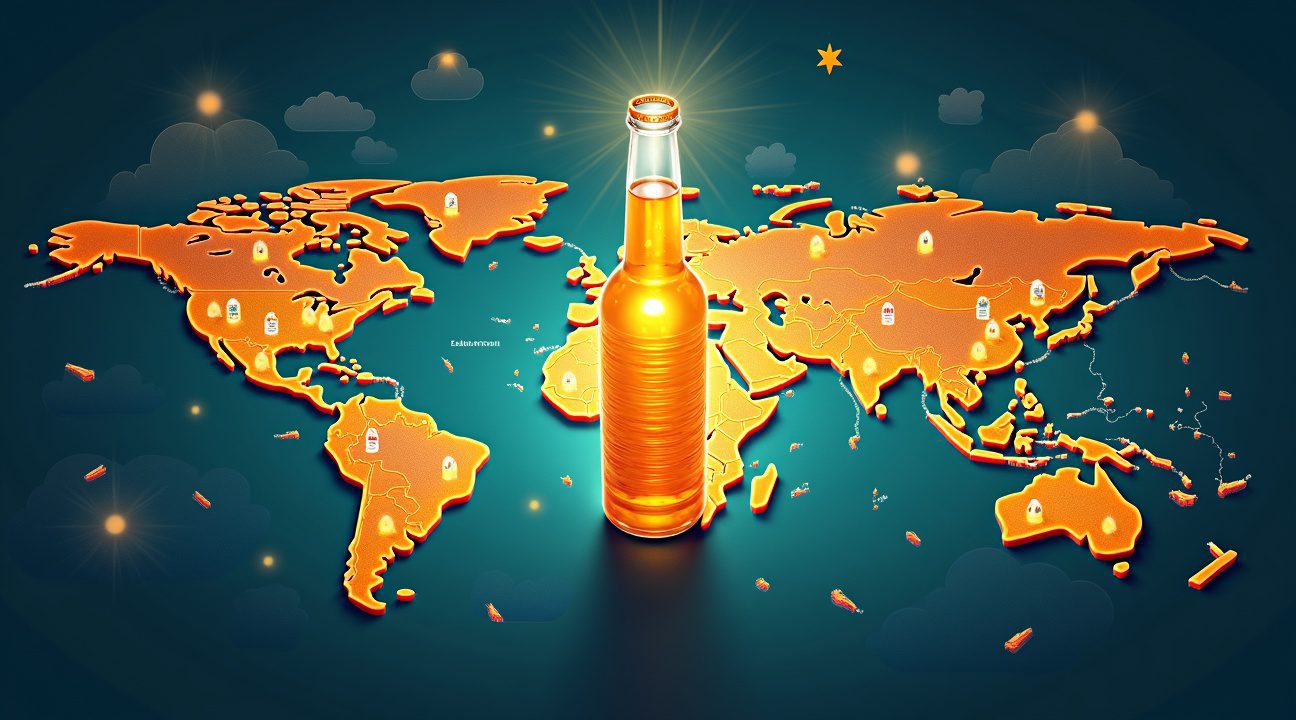
Where to Find Edible Ring Beer and Supporting the Movement
I can find Saltwater Brewery’s innovative Screamin’ Reels IPA featuring the groundbreaking E6PR rings at multiple retail locations throughout South Florida. This flagship product showcases how craft breweries can transform brewing waste into eco-friendly packaging solutions that protect marine life while maintaining product quality.
Saltwater Brewery has earned recognition as a Certified Independent Craft Brewery, demonstrating their commitment to both quality brewing and environmental responsibility. The brewery’s partnerships with established nonprofit organizations amplify their conservation impact significantly. Through collaboration with the Surfrider Foundation and MOTE Marine Laboratory & Aquarium, they’ve created a network that extends far beyond beer production into meaningful ocean protection initiatives.
How Consumer Choice Drives Change
Beer enthusiasts hold considerable power in accelerating the adoption of edible packaging technology across the brewing industry. When customers specifically request eco-friendly six-pack rings and actively refuse conventional plastic-wrapped beer products, they send a clear market signal that environmental packaging matters. This consumer-driven demand creates economic incentives for other breweries to invest in sustainable alternatives like innovative packaging solutions.
Retailers respond quickly to customer preferences, making vocal support for edible rings an effective strategy for expanding availability. Beer buyers can ask store managers about stocking products with E6PR technology and explain why this packaging innovation matters for ocean conservation. Such direct communication often proves more influential than passive purchasing decisions alone.
Saltwater Brewery’s community engagement extends well beyond product sales through comprehensive marine conservation programming. Their beach cleanup events remove existing plastic pollution while educating participants about the ongoing threat conventional packaging poses to marine ecosystems. These hands-on activities create tangible environmental benefits while building awareness about sustainable brewing practices.
The brewery’s charitable donation programs support research and advocacy efforts that address broader ocean health challenges. By directing funds to organizations conducting scientific research and policy advocacy, they contribute to systemic solutions rather than just individual product improvements. This holistic approach demonstrates how businesses can integrate environmental responsibility into their core operations.
Advocacy efforts by Saltwater Brewery help educate both consumers and industry peers about the feasibility and benefits of edible packaging technology. They regularly participate in trade shows, environmental conferences, and community events where they showcase the E6PR manufacturing process and share results from their marine safety testing. Such transparency encourages other breweries to explore similar innovations.
The brewery’s success with edible rings proves that environmental packaging doesn’t require compromising product quality or increasing costs significantly. Their approach shows how brewing byproducts can become valuable resources rather than waste streams, creating a circular economy model that other food and beverage companies might adopt.
Supporting this movement requires active participation from beer consumers who value ocean conservation alongside quality brewing. When people choose products featuring edible packaging and share their positive experiences through social media and word-of-mouth recommendations, they help normalize these innovations in the broader marketplace.
The expansion of E6PR technology depends on continued collaboration between breweries, packaging manufacturers, environmental organizations, and engaged consumers. Saltwater Brewery’s model demonstrates how strategic partnerships can accelerate the development and adoption of sustainable packaging solutions that benefit both businesses and marine ecosystems.
Beer lovers interested in supporting this initiative can follow Saltwater Brewery’s social media channels to learn about new product releases, participate in conservation events, and stay informed about expansion into additional markets. Their ongoing commitment to transparency means supporters can track the real environmental impact of choosing edible packaging over conventional plastic alternatives.
https://www.youtube.com/watch?v=Rti6QjlR2i0
Community Impact and Environmental Partnerships
Saltwater Brewery’s groundbreaking edible six-pack rings represent more than just innovative packaging—they demonstrate how one Florida brewery can spark industry-wide transformation. As the first brewery to implement fully edible and compostable six-pack rings made from grain leftovers, Saltwater Brewery has established a powerful precedent that other breweries across the nation are beginning to follow.
The brewery’s commitment extends far beyond their production facilities through strategic alliances with marine conservation organizations. These partnerships amplify the environmental message while providing scientific backing for their sustainable packaging initiatives. Marine biologists and environmental scientists work directly with the brewery to measure the real-world impact of their edible rings on ocean ecosystems and wildlife protection efforts.
Driving Consumer-Led Change
Consumers play a crucial role in expanding this environmental innovation throughout the beer industry. By actively seeking out products packaged with edible rings, beer enthusiasts send a clear market signal that sustainable packaging matters. This consumer preference creates economic incentives for other breweries to invest in similar technologies and production methods.
The ripple effect extends beyond individual purchasing decisions. When consumers share their positive experiences with edible packaging on social media and recommend these products to friends, they amplify the message organically. This grassroots advocacy proves particularly effective in the craft beer community, where authenticity and environmental responsibility resonate strongly with consumers.
The brewery’s success demonstrates how businesses can drive meaningful environmental change that extends well beyond their core products. Their grain-to-packaging circular economy model inspires other food and beverage companies to examine their own waste streams for innovative reuse opportunities. Several regional breweries have already announced plans to implement similar edible packaging systems, citing Saltwater Brewery’s success as motivation.
Community partnerships strengthen these environmental efforts through educational programs and beach cleanup initiatives. Local schools participate in learning programs that showcase how brewery waste transforms into ocean-safe packaging. These educational components help build environmental awareness among younger generations while demonstrating practical applications of sustainability principles.
Environmental organizations leverage the brewery’s innovation as a talking point for broader marine conservation efforts. The tangible nature of edible packaging makes complex environmental concepts more accessible to the general public. When people can see and touch packaging that won’t harm marine life, the abstract concept of ocean protection becomes immediately relevant and actionable.
The brewery’s partnerships with research institutions provide ongoing data collection and analysis that benefits the entire industry. Studies tracking the decomposition rates and marine impact of edible rings generate valuable scientific evidence that supports broader policy discussions about packaging regulations. This research foundation helps other companies justify investments in sustainable packaging technologies to their stakeholders.
Local businesses increasingly collaborate with the brewery on sustainability initiatives, creating a network of environmentally conscious enterprises throughout the region. Restaurants featuring the brewery’s products prominently display information about the edible packaging, extending the educational reach to diners who might not otherwise encounter these innovations.
The financial success of this sustainable packaging approach proves that environmental responsibility can align with business profitability. Other breweries observe that consumers willingly pay premium prices for products packaged in edible rings, demonstrating market viability for sustainable innovations. This economic validation encourages broader industry adoption and continued investment in environmental technologies.
Community impact extends to job creation within the sustainable packaging sector. The brewery’s success has attracted environmental technology companies to the region, creating employment opportunities for engineers, designers, and production specialists focused on sustainable packaging solutions.
Through these comprehensive community partnerships and environmental initiatives, Saltwater Brewery illustrates how individual businesses can catalyze systemic change. Their model proves that innovation in one area—transforming grain waste into edible packaging—can generate positive impacts across multiple sectors including education, research, tourism, and marine conservation. The brewery’s approach shows that environmental leadership requires both technological innovation and community engagement to achieve lasting change.
https://www.youtube.com/watch?v=MMYtHn5B-4w
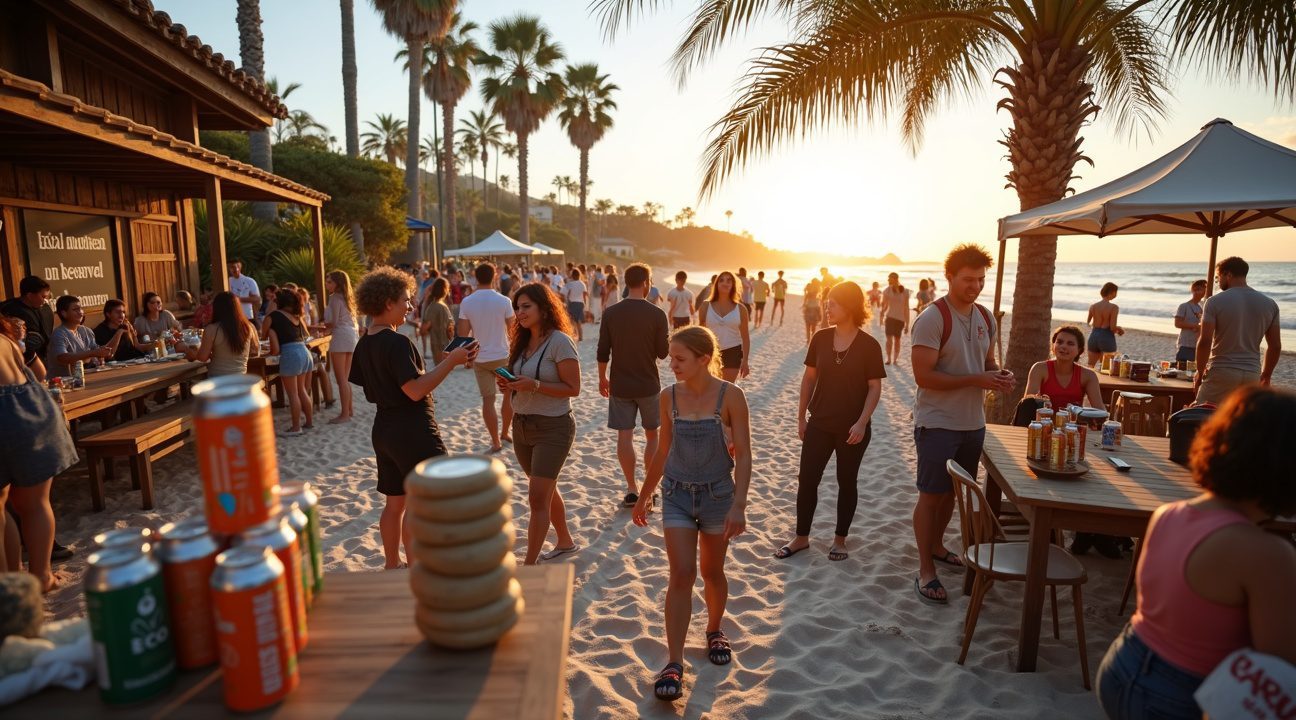
Sources:
Atlas of the Future – “Saltwater Brewery Edible Six-Pack Rings”
The Meaning of Water – “Saltwater Brewery Now Selling Beer in Edible, Compostable Six-Pack Rings”
Saltwater Brewery – “Eco Six Pack Rings”
KATV – “Florida Brewery Introduces Biodegradable, Edible Six-Pack Rings”
CraftBeer.com – “Finally, Brewery’s Biodegradable Six-Pack Rings Hit Grocery Stores”

